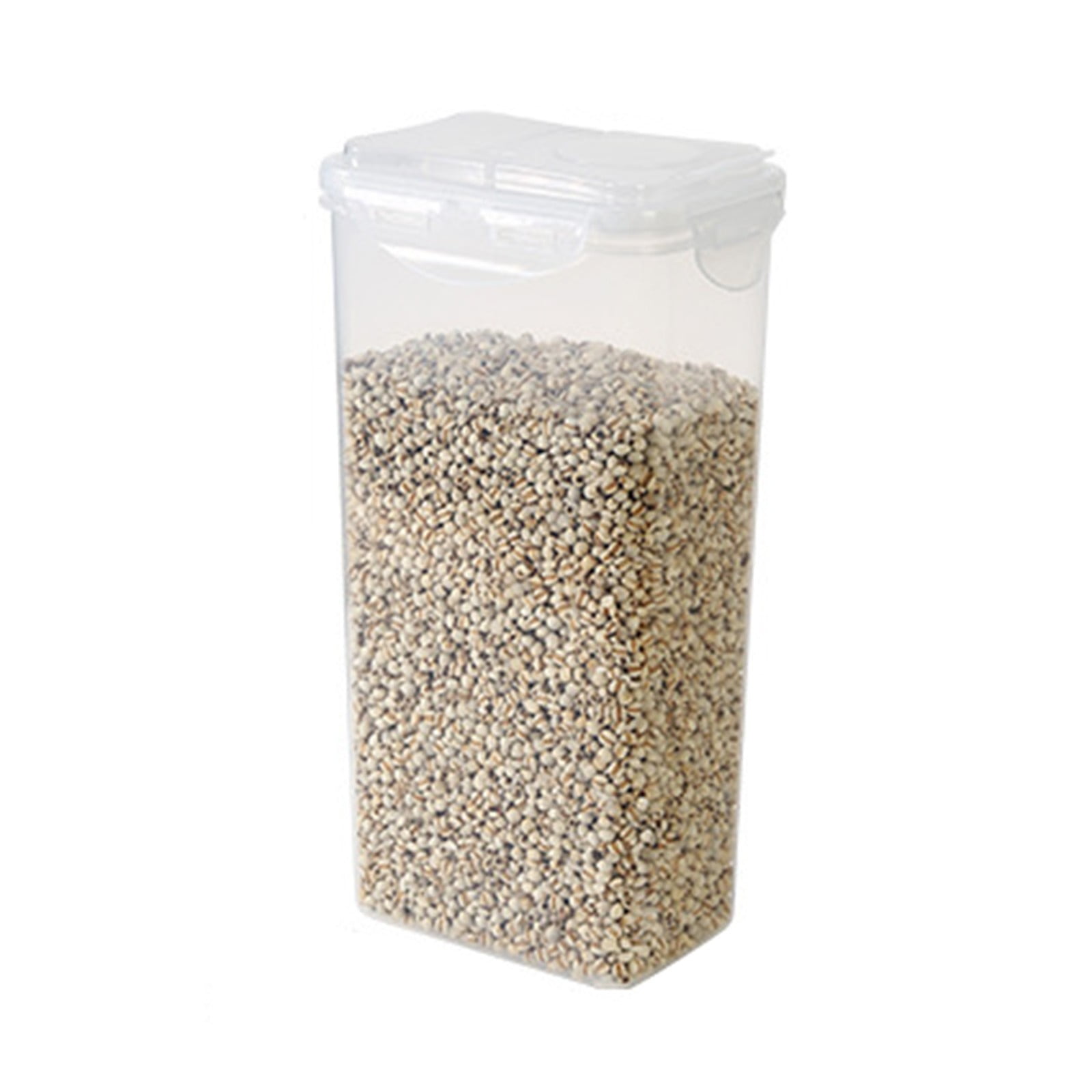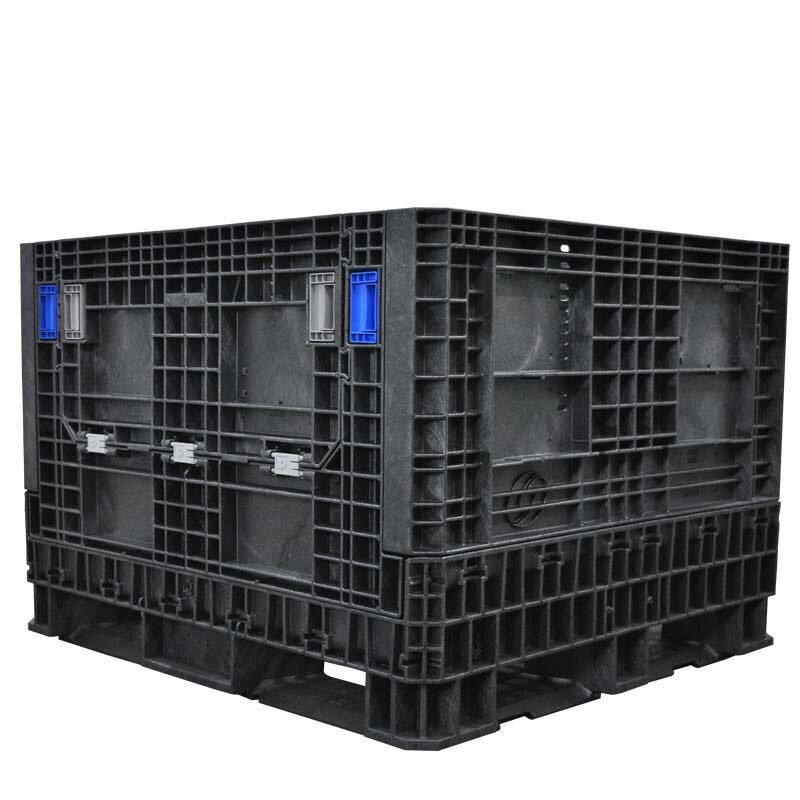The Function of Mass Plastic Containers in Effective Recycling Practices and Sustainability
Bulk plastic containers are essential to modern recycling efforts. Their style enhances the efficiency of material collection and transport, adding to sustainability goals. These containers not just maximize space but also assist in monitoring contamination degrees. Their implementation is not without obstacles. Comprehending the full range of their impact exposes a complex connection between logistics and ecological obligation that warrants more exploration.
Recognizing Mass Plastic Containers
Mass plastic containers serve as an essential element in various industries, assisting in the storage and transport of goods. These containers are typically made from robust products such as high-density polyethylene (HDPE) or polypropylene, which provide sturdiness and resistance to ecological variables. Their layout commonly consists of functions like stackability and modularity, enabling for efficient use of space during both storage and transportation.
Industries such as farming, food processing, and making often use bulk plastic containers due to their light-weight nature and ease of handling. The containers can be found in numerous sizes and configurations, dealing with the details demands of various products. Their versatility extends past plain functionality; they can also be personalized with covers, takes care of, and identifying options to boost usability - plastic bulk containers. Therefore, mass plastic containers play an essential role in optimizing logistics and supply chain procedures across numerous sectors, thereby adding to general effectiveness and cost-effectiveness
Benefits of Using Bulk Plastic Containers in Recycling
When organizations prioritize recycling efforts, the use of bulk plastic containers considerably improves the efficiency of the procedure. These containers are made to optimize room, permitting the storage and transport of bigger quantities of recyclable materials. This results in fewer trips to recycling centers, therefore lowering fuel usage and connected discharges.
Furthermore, mass plastic containers are resistant and resilient to numerous ecological variables, guaranteeing that products continue to be safeguarded throughout handling and transportation. Their light-weight design further adds to reduce transport prices.
The harmony of these containers facilitates much better sorting and handling of recyclable materials, which can enhance total recycling prices. Organizations that embrace bulk plastic containers additionally demonstrate a dedication to sustainability, favorably influencing their brand picture. Ultimately, these advantages not just enhance recycling practices yet likewise add to more comprehensive environmental objectives
Exactly How Bulk Plastic Containers Facilitate Material Collection
Efficient material collection is substantially enhanced by the use mass plastic containers, as they offer a organized and efficient option for collecting recyclable things. These containers are made to accommodate big volumes of products, which streamlines the sorting and storage space procedure. Their stackable layout makes the most of area application, making it simpler for centers to arrange recyclables without mess.
Furthermore, bulk plastic containers are long lasting and weather-resistant, enabling exterior positioning without destruction. This strength guarantees that materials remain protected until they are gathered for processing.

The harmony in shapes and size of these containers promotes standardization across collection factors, making it possible for far better monitoring of recyclable quantities. Furthermore, their clear nature permits easy visibility of contents, assisting in the surveillance of contamination levels and ensuring that just appropriate materials are collected. Overall, mass plastic containers play an important function in simplifying the product collection procedure, consequently advertising effective reusing methods.
Transport Efficiency and Environmental Impact
Transport effectiveness plays a crucial role in the recycling procedure, particularly with the optimization of tons capability wholesale plastic containers. By optimizing the quantity of product transferred, business can considerably minimize the number of journeys needed, consequently lessening their carbon footprint. This approach not only boosts functional efficiency however also adds to extra sustainable environmental methods.

Optimizing Lots Ability
Although optimizing load capability is usually neglected, it plays an important function in improving transportation efficiency and minimizing ecological impact in reusing methods. By making the most of the quantity that mass plastic containers can hold, recycling procedures can decrease the variety of journeys required for transportation. This not just reduces fuel usage but likewise reduces the damage on lorries. Effective tons management allows centers to make use of space effectively, guaranteeing that each transport cycle is as effective as feasible. In addition, well-optimized lots can result in far better settlements with logistics companies, possibly reducing general prices. Ultimately, published here enhancing lots capacity contributes to a much more sustainable reusing system by promoting efficient source usage and minimizing waste produced during transport.
Decreasing Carbon Footprint
As reusing procedures undertaking to decrease their ecological effect, reducing the carbon footprint related to transportation becomes a critical goal. Bulk plastic containers play a vital duty in attaining this aim by improving load efficiency and maximizing logistics. Their lightweight yet long lasting design permits optimum cargo space usage, lowering the variety of trips needed to carry products. By settling deliveries, reusing facilities can decrease gas intake and greenhouse gas exhausts. Additionally, tactically locating recycling centers reduces transportation distances, furthermore lowering carbon outputs. Employing fuel-efficient lorries and alternate energy sources boosts total sustainability. By incorporating these practices, the reusing sector can substantially decrease its carbon footprint, contributing to an extra lasting future.
Obstacles in the Use of Bulk Plastic Containers

Contamination Problems
Contamination issues stand for a considerable challenge in the efficient use bulk plastic containers within recycling techniques. These containers frequently accumulate deposits from previous materials, leading to blended materials that can hinder the reusing process. Impurities such as food waste, chemicals, or non-recyclable products can jeopardize the honesty of the entire set, causing raised disposal costs and lowered reusing prices. In addition, incorrect cleansing or sorting can intensify these concerns, making it challenging for recycling centers to process materials effectively. The presence of impurities not just influences the top quality of recycled items yet likewise weakens the general sustainability efforts targeted at reducing plastic waste. Resolving these contamination obstacles is essential for improving the efficiency of mass plastic container recycling.
Recycling Facilities Limitations
Inadequacy in reusing facilities postures significant challenges for the effective administration of mass plastic containers. Numerous reusing centers lack the capability to process look what i found big volumes of these containers successfully, resulting in increased expenses and delays. Inadequate sorting technologies often lead to contamination, as mass containers might be mixed with various other products, making complex the recycling procedure. Limited transport alternatives likewise hinder the activity of bulk plastic containers to proper reusing facilities, resulting in enhanced land fill waste. Additionally, a lack of standard methods for bulk container recycling develops complication amongst organizations and customers, further complicating initiatives to promote sustainability. Addressing these facilities constraints is important to improve recycling techniques and optimize the possibility of bulk plastic containers in a circular economy.
Finest Practices for Implementing Bulk Plastic Containers
When companies think about implementing bulk plastic containers in their reusing techniques, they should focus on a critical strategy that improves efficiency and minimizes contamination dangers. First, selecting the suitable container dimension and type is necessary to fit the quantity of materials being refined. Organizations must also establish clear labeling and signs to lead customers on correct disposal approaches, minimizing complication and mistakes. Routine training sessions for team can additionally reinforce these practices, making bulk plastic containers for sale certain everybody comprehends their functions in maintaining recycling integrity.
Additionally, companies should implement a regular maintenance schedule to examine and clean containers, stopping the build-up of pollutants. Partnering with local reusing centers can also enhance the collection procedure, making sure that materials are successfully processed. Organizations must check and evaluate their reusing metrics, using this information to refine methods over time and advertise continual renovation in their sustainability initiatives.
The Future of Bulk Plastic Containers in Lasting Practices
As organizations increasingly prioritize sustainability, the duty of mass plastic containers in recycling practices is readied to evolve significantly. Advancements in products scientific research are causing the development of naturally degradable and recyclable choices, boosting the environmental benefits of bulk plastic containers. On top of that, the implementation of closed-loop systems will enable for less complicated collection and repurposing of these containers, reducing waste and resource usage.
Technological improvements, such as smart radar, will allow companies to check the lifecycle of bulk containers, improving effectiveness in recycling procedures. As customer demand for sustainable methods expands, companies will likely embrace mass plastic containers developed for reuse and long-lasting worth. Furthermore, collaboration between markets and governments will promote the facility of standardized recycling methods, making sure that bulk containers are effectively incorporated right into more comprehensive sustainability efforts. In general, the future of bulk plastic containers shows up encouraging, with significant potential for adding to a circular economy.
Often Asked Questions
How Are Mass Plastic Containers Made and What Materials Are Made use of?
Bulk plastic containers are normally made from high-density polyethylene (HDPE) or polypropylene (PP) These materials are processed through shot molding or strike molding strategies, causing long lasting, lightweight containers suitable for various storage and transportation demands.
Can Mass Plastic Containers Be Recycled Multiple Times Prior To Recycling?
Yes, bulk plastic containers can be recycled multiple times prior to reusing. Their longevity and design enable duplicated use in different applications, promoting sustainability and resource effectiveness while lowering the requirement for new containers.

What Certifications Exist for Bulk Plastic Containers in Recycling?
Different certifications for bulk plastic containers include the Recycling Partnership's certification, the Cradle to Cradle Licensed ™ requirement, and the Sustainable Product packaging Coalition's guidelines, making sure containers satisfy certain environmental and recyclability standards for efficient recycling.
How Do Bulk Plastic Containers Compare to Other Recycling Storage Space Options?
Mass plastic containers supply greater resilience and capacity compared to other reusing storage space options, decreasing the threat of contamination and facilitating reliable transportation. Their design supports far better organization, boosting general effectiveness in recycling procedures.
What Is the Lifespan of a Mass Plastic Container in Recycling Processes?
The lifespan of a bulk plastic container in recycling procedures usually ranges from 5 to ten years, relying on use, material high quality, and ecological problems, allowing for multiple cycles of use before eventual disposal or recycling.
When organizations prioritize recycling initiatives, the application of mass plastic containers significantly enhances the effectiveness of the process. Transportation performance plays a necessary role in the recycling procedure, especially via the optimization of lots capacity in bulk plastic containers. The use of bulk plastic containers in reusing practices deals with considerable obstacles, specifically worrying contamination concerns and restrictions within reusing framework. Contamination problems represent a considerable challenge in the reliable use of bulk plastic containers within reusing techniques. When organizations consider implementing bulk plastic containers in their reusing practices, they should focus on a tactical approach that boosts effectiveness and lowers contamination dangers.